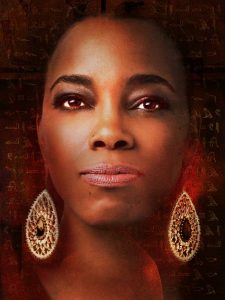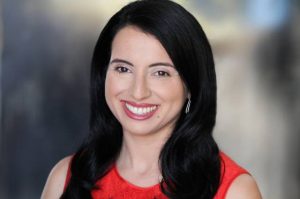
 The Classical Theatre of Harlem welcomes playwright Betty Shamieh to the main stage this fall with her new play, Fit for a Queen, a passion project that she undertook more than a decade ago. From the time that Shamieh learned about one of the most powerful woman in history, Hatshepsut, who had to disguise herself as a man in order to rule, she knew that she was called to tell her story.
The Classical Theatre of Harlem welcomes playwright Betty Shamieh to the main stage this fall with her new play, Fit for a Queen, a passion project that she undertook more than a decade ago. From the time that Shamieh learned about one of the most powerful woman in history, Hatshepsut, who had to disguise herself as a man in order to rule, she knew that she was called to tell her story.
StageBuddy had the unique opportunity chat with Shamieh about the phenomenal woman who inspired this play, how her story speaks volumes about humankind, and what she hopes audiences will take away.
How did the inspiration and the theme of women in politics transpire for the show?
Betty Shamieh: I think one of the reasons we are under this impression that it’s so shocking for a female to be a leader is that nobody knows about Hatshepsut. The fact that her cultural legacy has been erased -- if you knew about this women from 5th grade history class it would really affect how you thought about yourself as a little girl in the world. She ruled for 20 years and dressed as a man, and what I think is more interesting about her than say Cleopatra is that she said ‘don’t call me queen, call me king.’ It’s more difficult to assume that kind of title so it’s a whole identity shift she was able to find that I found fascinating.
I actually wrote this play many years ago -- it is a comedy and is told through her slave girl's eyes, which is a fictional character I created. You see her rise as she ascends the pharaoh ship. She is the third only surviving daughter of a pharaoh and Egyptians believe it’s the gods' way of saying that something had to change. Also what contributed to the story, is that her son-in-law during his reign made a systematic effort to destroy any image of her except as a woman. He almost succeeded at erasing her reign and this is one of triumphs of ancient archaeology being able to paste together most of the sphinxes that had her dressed as a male and uncover this history. I love the idea of this woman taking this chance to be the powerful person in the most powerful country in the world. I knew that I had to tell this story. The person who most wanted for her rule to end, in my opinion, was her daughter, in addition to her husband, because she wants to be queen. To me, it represents Mrs. Trump – that kind of woman. The parallels would be a woman like Hillary versus someone like Melania Trump – each represents two ways of being a woman.
What sparked this idea for you over ten years ago?
I had heard about this woman in school and then went on to graduate school and said I had to tell this story. There’s an exuberant and youthful quality to this play as well and I’m so grateful and excited that the Classical Theatre of Harlem decided to take this show on. I’ve worked in Europe a lot, but it’s very nice to be back in my home in New York.
Do you ever get to see Hatshepsut be vulnerable and struggle with this identity crisis?
Absolutely. Since it’s through the slave girl’s eyes, and is a piece about a female leader that looks at power and looks at movement -- like the women’s movement -- with a very cynical eye, audiences are able to see how the slave girl uses the religious movement around being a woman for her own purposes. Most people come to this play and expect to see this forthright women who takes power and it’s not that -- it’s a story about how movements are manipulated by self-interested individuals and that they may accomplish great things for other people on the way but essentially are operating for their own benefit. It’s important who you surround yourself with as a leader, as it determines who you become. In my play, the person she spends the most time with is a very realistic slave girl who doesn’t want to be under the thumb of a man. Needless to say, it’s a complicated story.

What are you most anticipating about the run?
It is absolutely exciting for me since I have been working in Europe since The Black Eyed opened in 2007 and getting to show audiences a different side of my work is thrilling. It also is exciting because it serves as a sort of homecoming.
How is theater different in the other parts of the world that you’ve worked?
What’s fascinating is that every audience in each country enjoys and looks for different elements. Seven or eight of my plays have been done in different countries because they are so eclectic and what’s compelling is that each audience is choosing what resonates with them the most and with their kind of theater. Each play seems to find its proper home and audience on the international stage. With that said, I’m very happy to say that Fit for a Queen play has landed in my home.
What would you love audiences to take away from the play?
We are all human beings and none of us are angels but we should all be allowed the full right of human beings. Whenever you assign a label to a group, you open the door for others to follow suit. I’m trying to dispel all labels because we are all human beings and should have all of the same rights. I’m selling a complicated story examining the motivations of people.
Fit for A Queen runs through Oct. 30th at the 3LD Art & Technology Center.